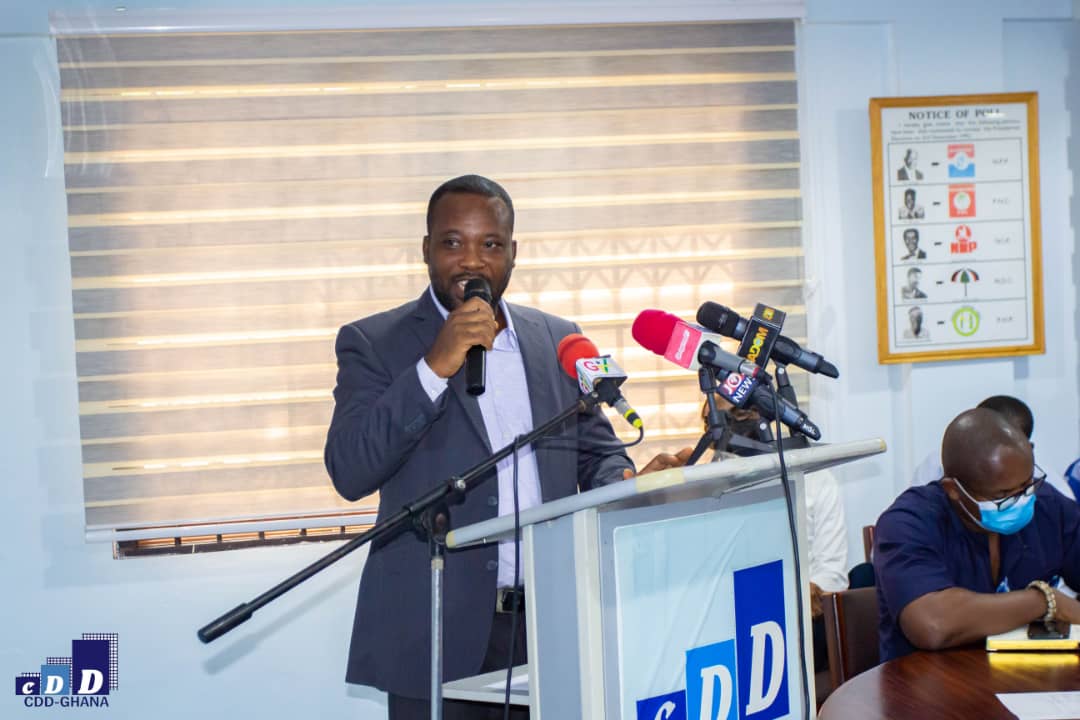
Accra, Ghana//-Human Rights Coalition and experts have warned Ghana’s Parliament that the ‘Proper Sexual Rights and Ghanaian Family Values Bill’ could spell doom for the country if it is passed into law in its current rigid form.
A Policy Analyst at the Integrated Social Development Centre (ISODEC,) Bernard Anaba, who led a roundtable discussion on the topic ‘Proper Sexual Rights and Ghanaian Family Values Bill and its Potential Impact on the Economy’, noted that government would struggle to get financial and technical resources from donor and development partners should the anti-gay bill before parliament is passed.
The roundtable discussion which was bythe Ghana Center for Democratic Development (CDD-Ghana) in collaboration with the Human Rights Coalition discussed the potential threats the proposed legislation poses to Ghana’s economy and among others.
In June 2021, the ‘Promotion of Proper Human Sexual Rights and Family Values Bill 2021’ was presented to Parliament under a Private Membership Bill.
The Bill imposes stiffer punishment for people of the same sex who engage in sexual activity. Offender(s) could spend up to 10 years in jail if caught in the act, while the promotion of LGBTQ+ activities is also outlawed by the Bill.
Since its introduction, a group of Members of Parliament (MPs) with support from some Civil Society Organisations, religious and traditional and community leaders has been pushing for the passage of the Bill into law.
However members of the Human Rights Coalition who comprise university professors, lawyers, human rights activities, civil society actors, among others have kicked against the Bill.
Mr Anaba added that the Bill would have repercussions and huge economic cost in terms of law enforcement, suspicion in communities, increased underground economy in health and social matters, if the MPs do not reconsider the Bill before passing it into law.
He further stated that the country’s relative weak economic position and heavy reliance on external financing and grants particularly expose Ghana to considerable economic impact.
The resultant indirect cost to the economy as a result of possible diplomatic tension, reduced/ delayed grants, and reputational damage mostly from the Western world where Ghana has significant dependence would be huge, he told participants at a well attended roundtable discussion held in Accra.
“Human Rights is a dominant pillar in the foundation of the UN system and Ghana is unlikely to withstand the economic and diplomatic pressure that would result from this Bill. We have invariably imposed on ourselves an additional layer of possible economic conditionality and a loss of leverage in international circles”.
Also, the country’s budget which relies on grants of about 4-6%, each year from development partners could be hampered if the country implements the Bill.
Touching on the indirect economic impact, Mr Anaba mentioned a clear conflict between key national personalities of Ghana and key international personalities on the Bill.
“The stature of these personalities, who are major decision-makers for the country is a recipe for diplomatic row and potentially a major source of diplomatic tension between Ghana and the UN Human Rights Council”, he added.
Recommendations
Mr Anaba recommended that proponents of the Bill should consider resolving all the contradictions and sources of conflict and tension with the UN system of Human Rights which have a better chance of prevailing against this Bill in the long-run.
“Ghana has ratified many Global and Regional Covenants on Human Rights, we must take notice of our obligations before passing the anti-gay Rights Bill.
The government may need to conduct a cost benefit analysis of this Bill to avoid the potential reputational, economic and diplomatic friction, already triggered and likely to result from the passage of the Bill into law”.
Contributing to the discussion, Dr Theo Acheampong, an economist and political risk expert, said the passage of the Bill would further reduce foreign aid inflow into the country.
African Eye Report


